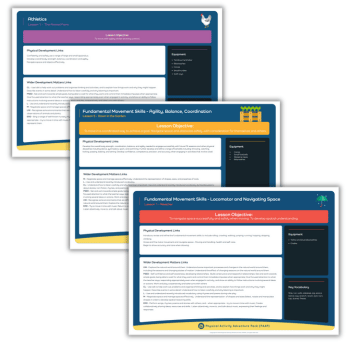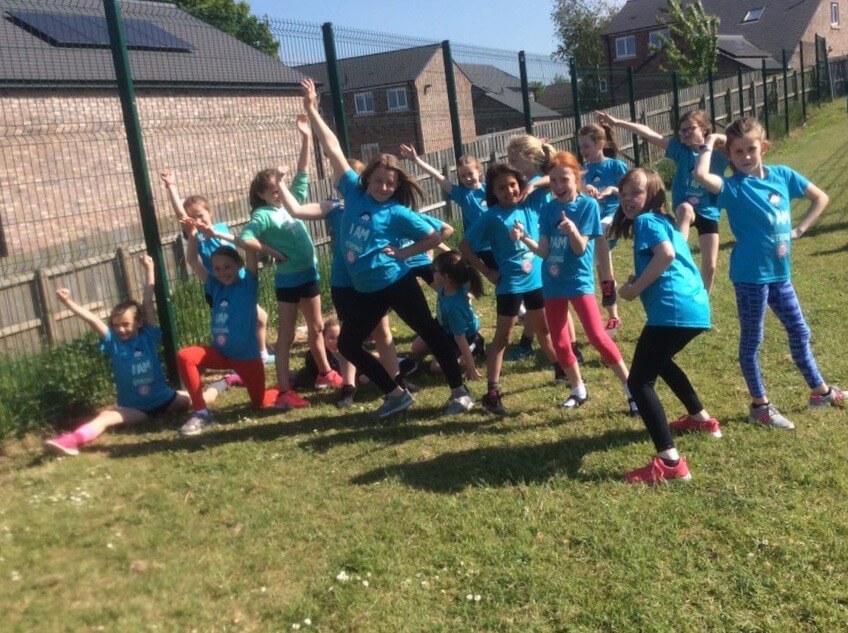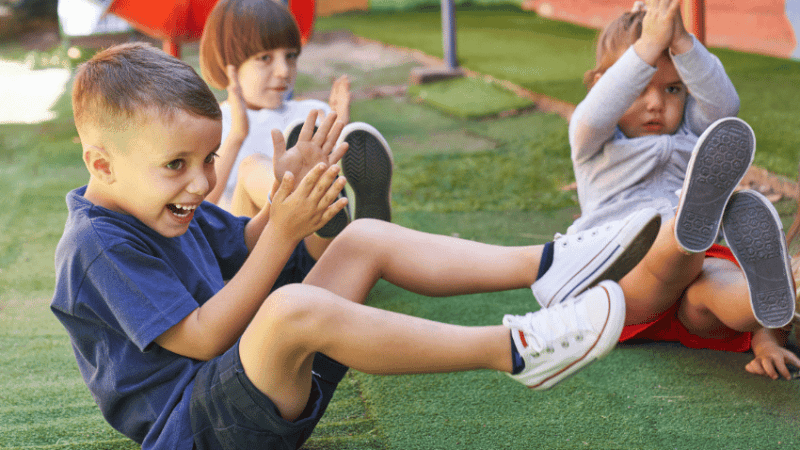How a Running Club Can Boost Children’s Self-Esteem and Confidence

The finish line is just the beginning when it comes to this special club for girls, says Bev Forrest…

- by Bev Forrest
- History specialist, former chair of Historical Association Primary Committee

It was smiles all round when a group of Y4 girls from St Joseph’s Catholic Primary in Pudsey, West Yorkshire, completed their 5km Parkrun challenge this summer.
After six weeks of dedicated training, they ran, skipped and danced over the finishing line, accompanied by their proud ‘mama mermaid’, student teacher Caroline Haunch.
Motivated by the aims of the Mini Mermaid Running Club organisation, and wanting to further improve the physical health and self-esteem of the girls in her class, Caroline introduced a running club with a difference during her final PGCE placement.
She says, “I noticed a ‘can’t do’ attitude’, as well as strained relationships and, at times, low self-esteem and confidence, among the girls. I suggested to SLT that the Mini Mermaid programme would be a great opportunity to not only discuss with the girls the importance of exercise and how this can positively support mental health, but also encourage them to listen to their own inner voice and know that they are truly amazing young girls.”
The senior management team from St Joseph’s couldn’t fail to be impressed by Caroline’s level of commitment.
At a time when most student teachers are focusing on surviving their final placement, Caroline realised that getting her pupils involved in this initiative would not just benefit them physically but also give them a more positive attitude towards lessons and school in general, ultimately impacting on their progress.

Physical and mental
Caroline used Mini Mermaid materials to support the running of the club. The programme is specifically designed to tackle lack of physical activity within this age group and increase levels of self-esteem.
It comprises bi-weekly sessions held over six weeks. The programme has its roots in the USA and was brought to the UK by Hannah Corne. Her daughter experiences selective mutism – her anxiety means that she cannot verbally interact with adults.
Hannah saw that when her daughter was outside, being active, her anxiety was low and she could talk to her in front of adults. After further research, she was struck by the aims of the Mini Mermaid programme and how it encompasses the whole child.
Since 2015, the organisation has reached over 1,000 children. Resources include everything needed to run sessions, but also gives coaches the freedom to introduce their own ideas.
Teacher Caroline has always loved running, but starting a club is possible even if you are a novice.
The important thing is to be aware of safety issues, particularly if you plan to take pupils off-site. It’s also essential to get pupils to warm up and cool down, just as you would do in regular PE lessons.
In 2016, Dr Nicola Eccles conducted a research project into the work of Mini Mermaid UK and found that the clubs created a unique and supportive space for girls to learn the necessary skills to deal with everyday issues.
Trending
Areas of impact included helping girls get to know themselves better and develop resilience, better manage peer relations and developing an increasing sense of physical self-awareness.
Not just running
Don’t be put off by the term ‘running club’ either, as this approach encompasses all types of movement, whether it’s walking, skipping or jogging.
This attracted Caroline, as she explains: “It isn’t about being the fastest runner. It’s about having fun and moving your body, no matter what shape, size or ability you are.”
Caroline also found it was a brilliant way to make stronger links with parents, particularly those that find more traditional ways of participating in school events intimidating.
One parent commented, “My daughter says she feels happier and more positive since she started running. She also said that girls in the class are getting on better.”
If you’re reading this and wondering where boys fit in, many of these ideas would apply equally to them, of course. Recognising a need to support all pupils, Mini Mermaid has recently launched Young Tritons for boys aged seven to 11.
Caroline has now left St Joseph’s to take up her first teaching job but her work at the school hasn’t been wasted.
Impressed by the results she achieved in such a short period of time, and at the request of both pupils and parents, staff are extending the programme. Alongside this, a Young Tritons club is being formed for boys.
Caroline has now introduced a club at her new school, Holy Name Catholic Voluntary Academy in Leeds. “I wanted to carry on the ethos and importance of the Mini Mermaid Running Club, and it’s with great pleasure that I’m now coaching a Y3 group,” says Caroline.
Currently, Mini Mermaid operates in Leeds, Liverpool and London, but even if you live outside these areas, there’s no reason not to set up your own club. The finish line is just the beginning.
Tips for starting a running club
- Have clear aims. What do you want pupils to achieve? Is the focus on achieving a healthy lifestyle, being part of a team or is there a competitive element? Setting a clear goal such as successfully completing a 2km run or taking part in a charity event will help to steer the focus of the sessions and give the club a timescale.
- Keep it small. While you will have no problem recruiting pupils, you may have issues finding sufficient volunteers to help you run your club. This can be a headache and take up more time than running the club itself.
- Timing is key. While a lunchtime may initially seem preferable, fitting in eating lunch and a session of physical exercise can be tricky. Ideally, pupils should eat after exercise, not directly before, but this may not be possible. Also, do you have sufficient facilities for pupils to change and wash at lunchtime? You may find after school a better option.
Running club resources
- The Mini Mermaid website has information about the scheme and plenty of inspiring ideas to inspire you. There are plans to extend the scheme nationally.
- Visit the Parkrun website for information about your nearest junior run and to read inspiring participation stories.
- Take part in a Race for Life 1k running or 3k walking route for Cancer Research UK. Get a free schools resources pack from raceforlife.cancerresearchuk.org.
- Just Run is US-based but has some great ideas for activities to add variety to your sessions.
- Marathon Kids is part of the Kids Run Free charity and explains how to help pupils run the equivalent of four marathons over a school year.
Bev Forrest is a primary teacher trainer and member of the Historical Association primary committee. She is on the editorial board of the journal Primary History and is an assessor for the History Quality Mark.







